Visiting Hawai‘i Volcanoes National Park with Kids
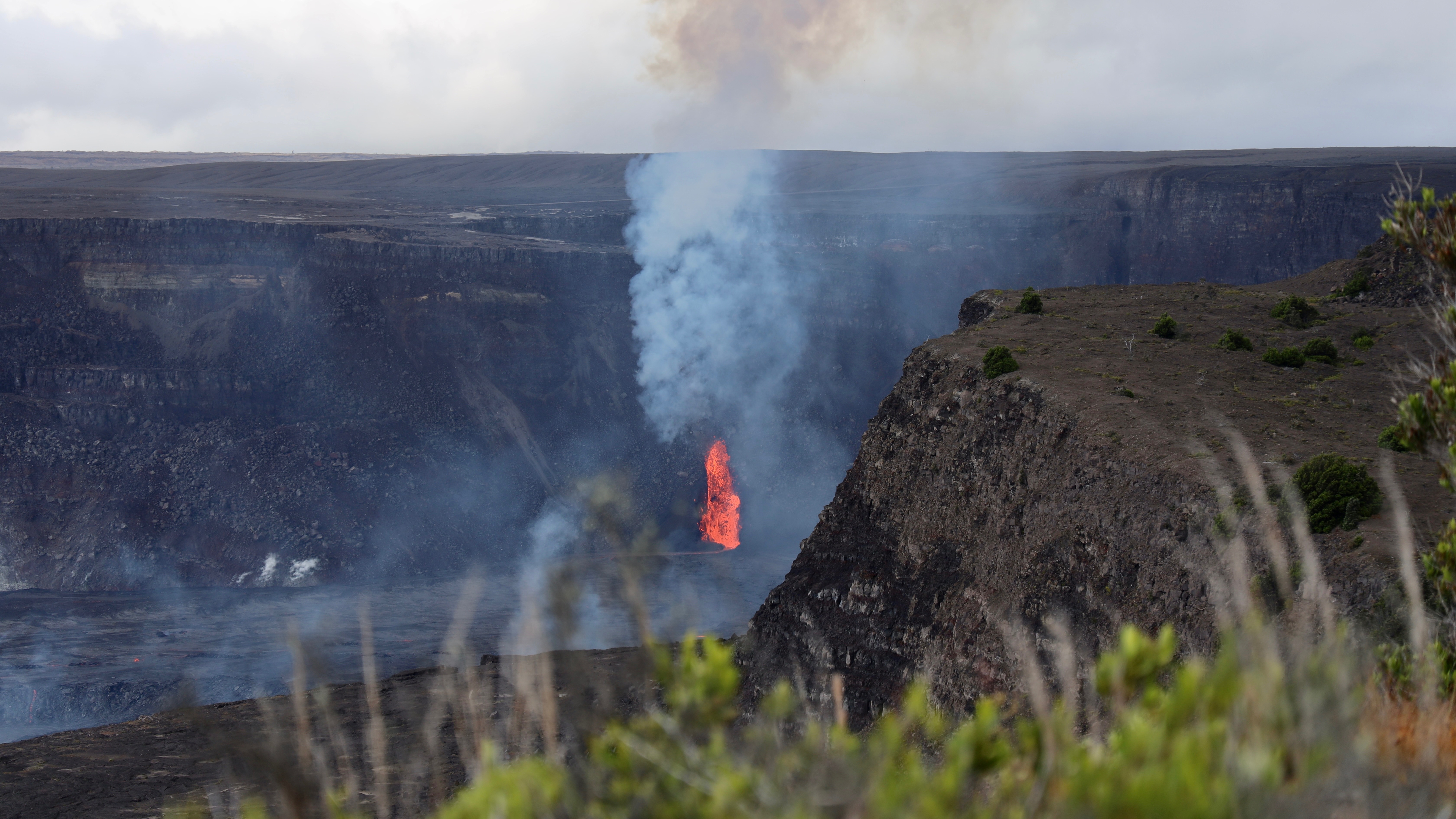
Hawai‘i Volcanoes National Park is a must-see destination for families visiting the Big Island of Hawaii. Stretching from sea level to 13,680 ft, this extraordinary park is home to the summits of two active volcanoes: Kīlauea, one of the most active volcanoes in the world, and Mauna Loa. For those lucky enough, witnessing the flowing lava at the bottom of the caldera is an unforgettable experience.
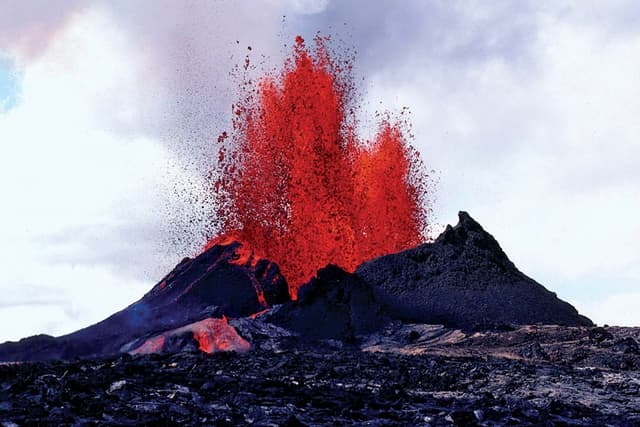
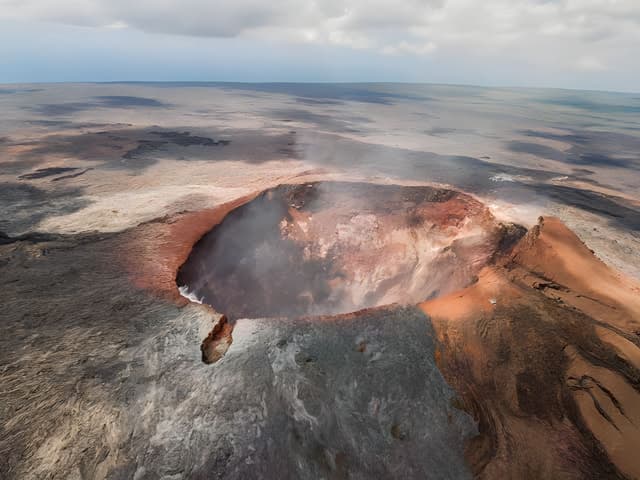
Recognized as an International Biosphere Reserve and a UNESCO World Heritage Site, this park offers a wealth of natural wonders. Here’s everything you need to know to plan your family adventure to Hawai‘i Volcanoes National Park.
Where is Hawai‘i Volcanoes National Park?
Located on the eastern part of the Big Island, Hawai‘i Volcanoes National Park is about a 2-hour and 15-minute drive from Kona and 45 minutes from Hilo. If you’re staying on the Kailua-Kona side of the island, make sure to plan your trip accordingly, as you will need over two hours to reach the park. Many families choose to stay on the Hilo side for a shorter drive.
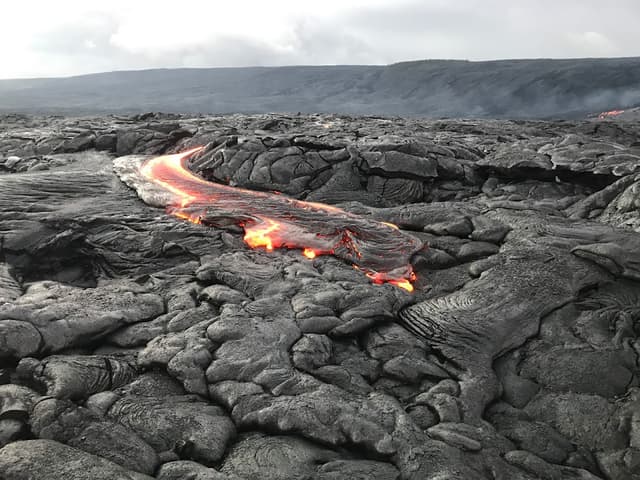
How to Get to Hawai‘i Volcanoes National Park
1. **Rent a Car**: The easiest way to explore the park is by renting a car. This allows you to travel at your own pace. If you prefer, you can rent a car for just a day.
2. **Public Transportation**: The Hele-On Bus provides public transit to Hawai‘i Volcanoes National Park from Hilo Monday through Friday.
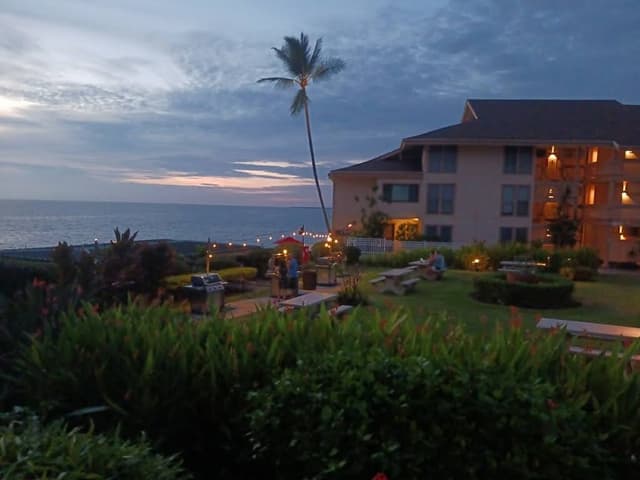
3. **Tour Services**: Various companies offer 4-6 hour tours on tour buses with hotel pick-up and drop-off. Costs vary based on stops and sightseeing options.
What to Pack for Hawai‘i Volcanoes National Park
Before heading out, here are some essentials to pack:
- **Snacks and Water**: Staying hydrated is crucial, so bring enough water for your family.
- **Sturdy Shoes**: Trails can be covered in small lava rocks and can be slippery, especially after rain.
- **Rain Jacket/Poncho**: Expect rain, especially in the summer, so a rain jacket is a must.
Entrance Fees to Hawai‘i Volcanoes National Park
The entrance fee is $35 per vehicle, valid for seven days from the date of purchase. If you have an America the Beautiful Interagency Annual Pass, you can enter the park for free. The pass costs $80 and is valid for 12 months.
💡 **Good to Know**: As of May 26, 2023, all entry fees must be paid using credit or debit cards; cash is no longer accepted.
Where to Stay in Hawai‘i Volcanoes National Park
You have several lodging options when visiting Hawai‘i Volcanoes National Park. While staying anywhere on the island is feasible, consider the closer accommodations on the Hilo side for less travel time.
For a unique experience, stay at the Volcano House, established in 1846, which offers 33 historic rooms, a dining area, and cultural events. The park also manages ten camper cabins and campsites in the nearby Nāmakanipaio Campground.
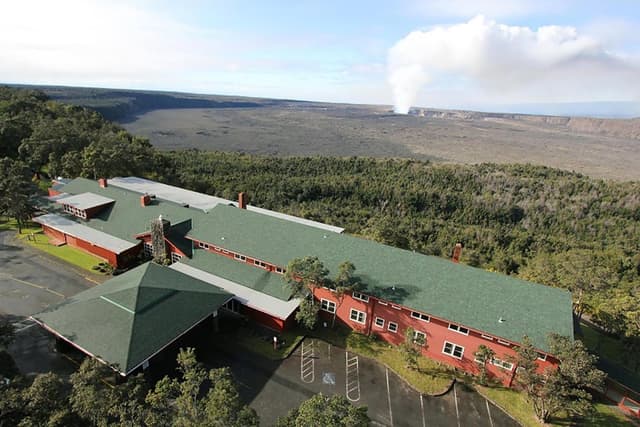
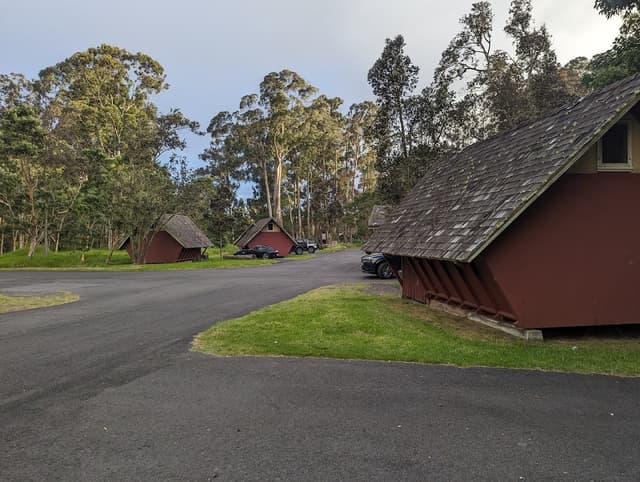
💡 **Good to Know**: Staying within the park allows easy access to the lava viewing spots, which is especially nice for night visits.
Dining in Hawai‘i Volcanoes National Park
The Volcano House, located near the Kīlauea Visitor Center, features two dining options: The Rim at Volcano House and Uncle George’s Lounge, both open for breakfast, lunch, and dinner. For a later dinner, we enjoyed traditional Japanese cuisine at Izakaya Miyo in Hilo.
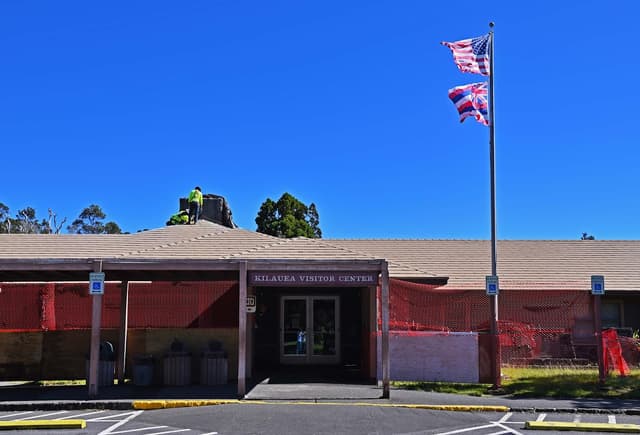
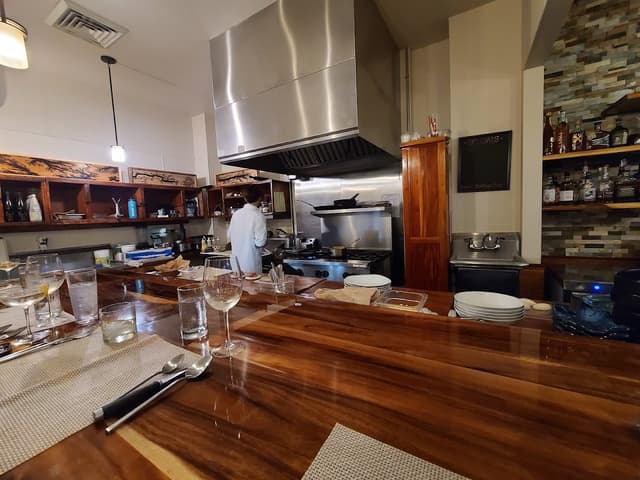
Hawai‘i Volcanoes National Park Visitor Center
The first stop in any national park should be the Visitor Center. The Kīlauea Visitor Center houses a small museum about the park, a theater room, and a gift shop. While there are no dining options here, you can enjoy meals at the Volcano House nearby.
💡 **Good to Know**: Before heading out to view the erupting Kīlauea, check the live webcam for current conditions and consult a Park Ranger for the best viewing spots.
Exploring the Park
The most memorable moment of our trip was witnessing the eruption of Kīlauea. We were fortunate that the eruption started just before our visit, allowing us to safely observe the lava flow in the caldera.
Kīlauea Overlook
The Kīlauea Overlook is a short drive from the Kīlauea Visitor Center. Due to limited parking, we followed the Park Ranger's advice and parked further down Crater Rim Dr., enjoying a lovely paved path to the overlook.
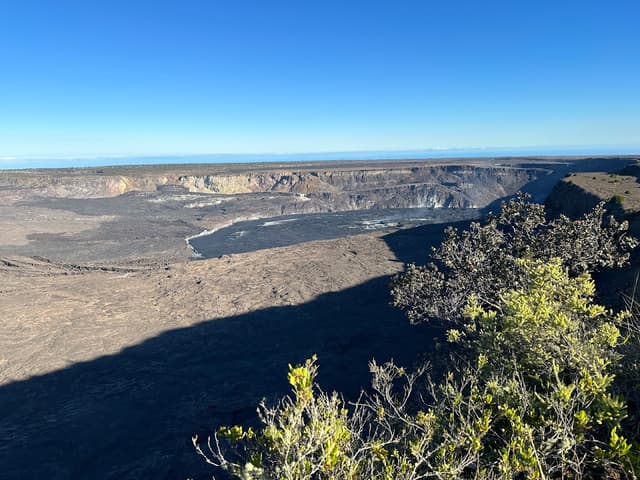
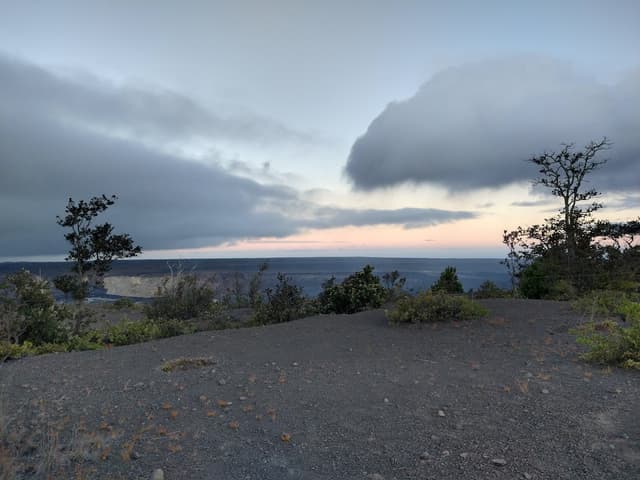
Rainforest
The park spans 335,259 acres of diverse landscapes, including rainforests. We were pleasantly surprised to find ourselves in a lush tropical rainforest on our way to the Nāhuku (Thurston Lava Tube).
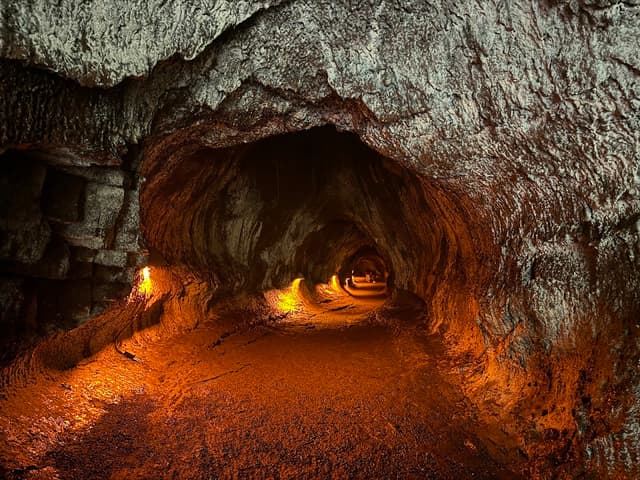
Nāhuku (Thurston Lava Tube)
A visit to Nāhuku is a must! This 500-year-old lava tube was once a channel for lava with temperatures reaching 2,000° Fahrenheit (1,093° Celsius).
- **Trailhead**: Nāhuku parking area or Kīlauea Iki Overlook
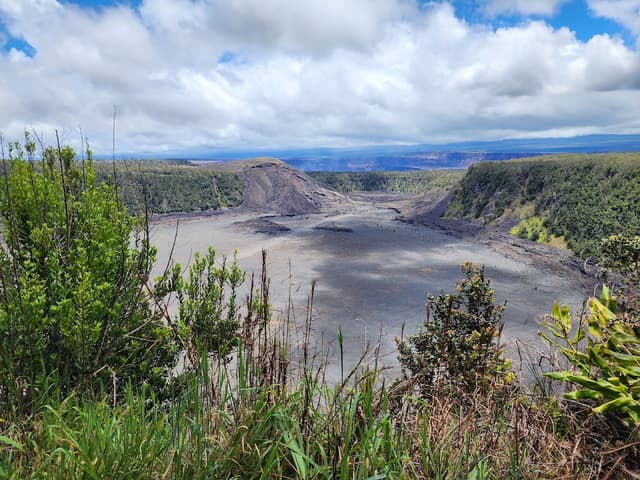
- **Round-trip Distance**: 0.5 mi from Nāhuku; 1.5 mi from Kīlauea Iki Overlook; 6.0 mi from Devastation Trailhead
- **Time**: 30 minutes to 1 hour
- **Level**: Easy, loop-shaped trail
- **Elevation**: No significant elevation gain/loss
The walk through the rainforest to the lava tube is a delightful experience. Don’t forget your flashlight and wear sturdy shoes as it can be wet and slippery inside!
Devastation Trail
The Devastation Trail features a paved walkway that guides you through cinder-covered terrain from the 1959 Kīlauea Iki eruption.
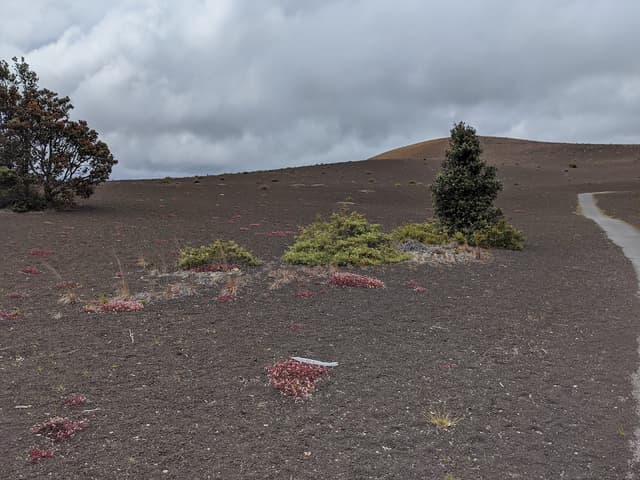
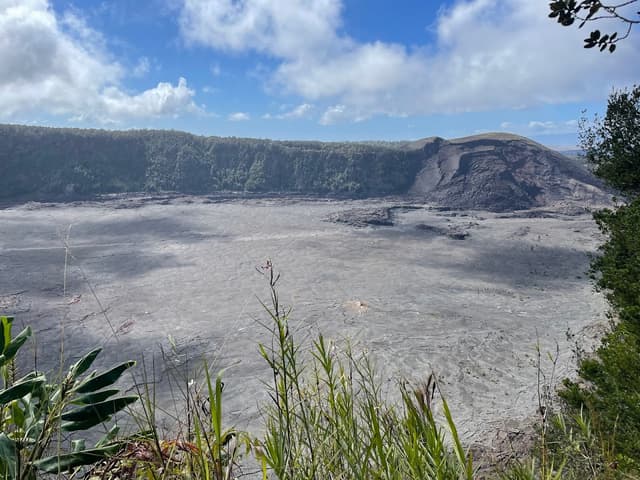
- **Trailhead**: Pu’upua’i parking lot or Devastation Trail parking lot
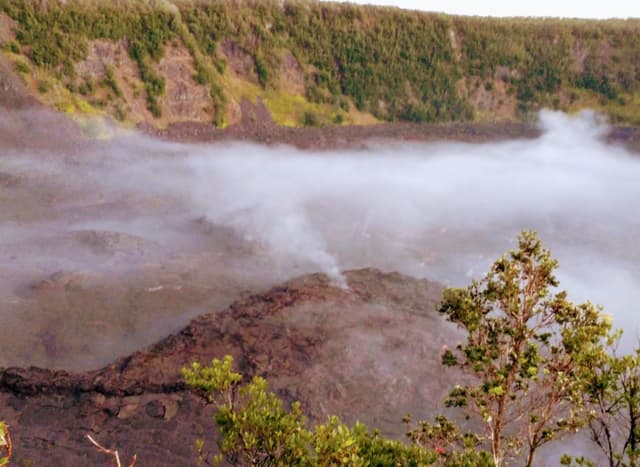
- **Round-trip Distance**: 1 mile (1.6 km)
- **Time**: 30 minutes
- **Level**: Easy, paved
- **Elevation**: 55 feet
Cultural Significance
Kīlauea is considered sacred by Native Hawaiians and is associated with Pelehonuamea (Pele), the goddess of volcanism. Key locations like Kaluapele (the caldera) and Halemaʻumaʻu (her dwelling place) are significant in Hawaiian culture.
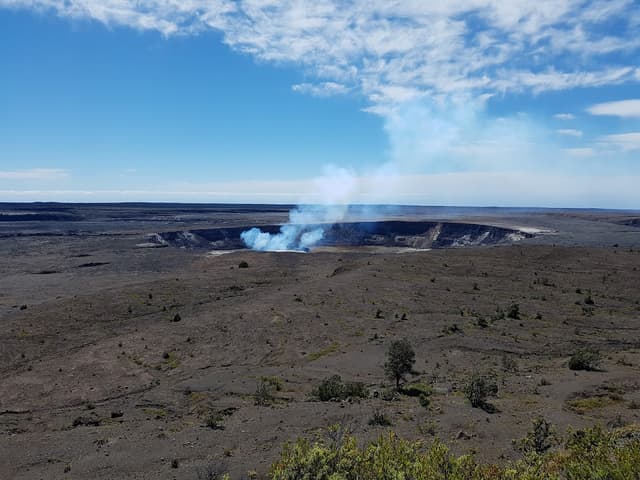
As part of the tradition, it’s respectful to seek permission from Pele before exploring her land.
Junior Ranger Program
Did you know every National Park in the U.S. has a Junior Ranger Program? It involves completing an activity book and answering questions about the park to earn a Junior Ranger Badge. This program is an excellent way to engage your children in nature and encourage family exploration.
When you arrive at the Kīlauea Visitor Center, ask the Park Ranger for the complimentary Junior Ranger activity book.
Leave No Trace
Visiting a national park is a great opportunity to teach your kids about nature conservation. Follow the Leave No Trace philosophy: stay on designated trails, don’t take anything from the park, and dispose of waste properly. By doing these simple things, you help protect the parks for future generations.
Plan your family trip to Hawai‘i Volcanoes National Park and create unforgettable memories while exploring this natural wonder!
The home for unique & authentic travel